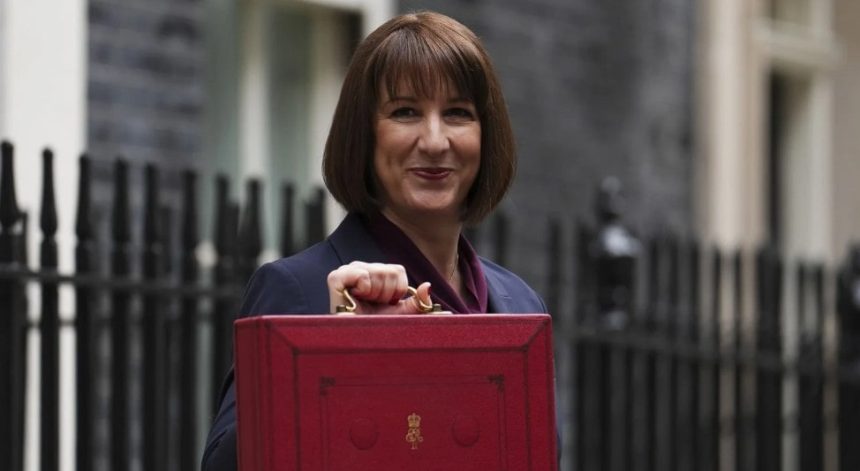The Office for National Statistics( ONS) has trimmed its estimate of the UK’s borrowing for the current fiscal year by£ 2 billion after uncovering an error in Handbasket bills.
The modification comes just weeks before Chancellor Rachel Reeves is due to deliver her highly watched Budget.
HM Revenue & Customs( HMRC) flagged the mistake, revealing disagreement in the Handbasket cash bills the ONS had reckoned on when publishing its original borrowing numbers in September.
As a result, borrowing between April and August now stands at£ 81.8 billion, down from the preliminarily reported£ 83.8 billion.
Despite the correction, the figure still overshoots the Office for Budget Responsibility( OBR) cast of£ 72.4 billion for the same period.
The current budget deficit, which excludes investment spending, has also been reduced from £62 billion to £60 billion, yet remains far higher than the £46.6 billion projected by the OBR.
The ONS additionally trimmed last year’s borrowing total by £1 billion.
“This latest correction is a good reason to take all official data with a pinch of salt for now,” said Rob Wood, economist at Pantheon Macroeconomics.
“Borrowing massively overshot OBR forecasts in the latest data and still does with this correction, but by a bit less than before, offering some relief to the chancellor,” he added.
The revision adds to growing concern about the accuracy of official statistics, following a string of recent errors that have complicated policymaking for both the government and the Bank of England.
James Benford, the ONS’s director-general for economic statistics, attributed the mistake to HMRC, saying it was “difficult for the ONS to set up a mechanism to independently check these external inputs”.
HMRC admitted it had “identified an error in our VAT cash receipts”, though offered no further details.
The timing could not be worse for the Treasury. Chancellor Rachel Reeves faces a daunting fiscal gap, estimated between £20 billion and £30 billion, ahead of her first Budget later this month.
She has pledged to balance day-to-day spending through tax revenues by 2029–30, though the OBR’s March forecast suggested she had only a thin margin for error.
Gordon Shannon, a bond fund manager at TwentyFour Asset Management, noted that while the £2 billion revision was minor in scale, persistent data flaws were “unhelpful for gilt investors” given that these figures feed directly into Budget decisions.
The ONS has faced repeated criticism this year after overstating April’s inflation figures and delaying the release of retail sales data in August due to seasonal adjustment errors.
Rob Wood stressed that the fault lay with HMRC rather than the ONS, praising the statistics agency for addressing the issue transparently.
Yet he warned that unreliable data leaves the OBR struggling to make “crucial judgments on productivity growth”.
In the coming weeks, the OBR is expected to revise down its UK productivity forecasts, a move likely to deepen the fiscal challenge for Reeves.
“The public finances error just goes to highlight the shaky ground on which these fiscal judgments, and therefore the chancellor’s decisions on taxes, are based,” Wood said.
Benford confirmed that the ONS would now collaborate closely with both the OBR and data suppliers to strengthen internal checks and ensure “robust” data validation going forward.






